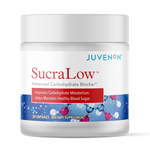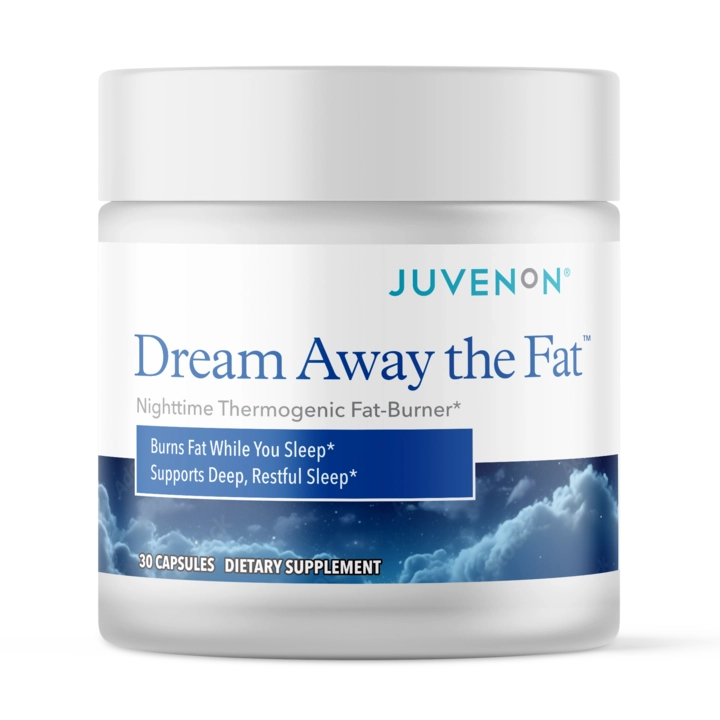 For many adults, blood pressure is a big concern—especially as they age. Unfortunately, the body goes through some changes during the aging process that can naturally increase blood pressure. Paired with unhealthy lifestyle choices that also lend themselves to increased blood pressure, this can lead to some health complications.
For many adults, blood pressure is a big concern—especially as they age. Unfortunately, the body goes through some changes during the aging process that can naturally increase blood pressure. Paired with unhealthy lifestyle choices that also lend themselves to increased blood pressure, this can lead to some health complications.
Fortunately, there are many natural ways to help manage your blood pressure. Most are lifestyle changes, but there are certain supplements that may help too—like Juvenon’s Thymogel, which contains blood pressure-reducing black cumin seed oil. Additionally, these lifestyle changes and supplements do much more than just help with blood pressure—they can promote better health in several ways.
In this article, you will learn:
- How your body regulates blood pressure using hormones, your kidneys, the endothelial linings of your blood vessels, and your sympathetic nervous system,
- How aging affects your blood pressure,
- Which lifestyle changes can help you to manage your blood pressure no matter your age,
- And how the black cumin seed oil in Thymogel works to promote healthier blood pressure and improve your general wellness.
How Does Your Body Regulate Blood Pressure?
A healthy blood pressure is vital because it’s what allows blood and oxygen to effectively travel to all of your various body tissues after being pumped out by the heart.
Blood pressure is regulated by a set of hormones collectively called the renin-angiotensin-aldosterone system. Blood pressure regulation is also dictated by the endothelial lining of your blood vessels and your nervous system.[1]
The renin-angiotensin-aldosterone system regulates fluid and salt balance along with blood pressure. When there’s too much fluid in the blood, hormones in this system activate to send that extra fluid to the kidneys to be excreted. When there’s too much salt, these hormones will signal the body to hold on to extra fluid to dilute the salt, thereby increasing blood volume.
The endothelium of your blood vessels is what gives them their flexibility. It’s a membrane that can constrict or dilate in response to the renin-angiotensin-aldosterone system or from signals sent by the nervous system. When blood vessels constrict, blood pressure increases, and when the vessels dilate (widen), blood pressure decreases.
Finally, your sympathetic nervous system controls your “fight or flight” response. When you’re stressed out and this response is activated, it increases your heart rate so that blood is pumping harder and faster through your body—which can increase your blood pressure.
Effects of Aging on Blood Pressure
As you age, your arteries tend to naturally become stiffer, which means the endothelial linings of your blood vessels aren’t as easily able to constrict or dilate to help manage your blood pressure levels.[2]
Researchers have noted that a general trend of aging is that arterial stiffness and blood pressure both increase hand-in-hand as people get older. Arterial stiffness can also be a precursor to increased blood pressure levels in people who are otherwise healthy.[3]
Additionally, researchers have also found that, as they age, women are more likely to have an “exaggerated” blood pressure response to physical activity—suggesting that aging (particularly in women) impedes the body’s ability to regulate blood pressure levels.[4]
Lifestyle Management
Fortunately, there are many lifestyle factors that can make a significant difference in helping you manage your blood pressure—even as you age.
Here are 5 strategies you can employ to promote healthy blood pressure levels:
Losing weight
If you’re overweight or obese, the extra weight you’re carrying exerts increased pressure on your whole body, which can increase your blood pressure. Eating a balanced diet with a moderate calorie restriction to promote steady and sustainable weight loss may help with this.
Exercising
When your body is accustomed to exercise, both your heart rate and blood pressure will be lower during exercise—meaning that your body won’t have to work as hard to regulate these factors while you’re being physically active. Thus, the exaggerated blood pressure response to exercise is less likely to become an issue as you age.
Watching your salt intake
Although most researchers now agree that not everyone needs to strictly limit their salt to manage blood pressure, there is a certain subset of the population that is “salt sensitive”. Extrapolated from one study on the topic, we can roughly guess that about half the population may be salt sensitive. This means that their blood pressure is very sensitive to the amount of salt in their diet. If you’re one of these salt sensitive individuals, then lowering your salt intake may help promote healthier blood pressure levels. Regardless, salt reduction is often recommended across the board because it can be difficult to test for salt sensitivity.[5]
Managing your stress
When you’re under stress, your sympathetic nervous system activates—putting you in “fight or flight” mode. And when you’re chronically stressed, your sympathetic nervous system is continually activated—meaning that your heart is consistently pumping harder than it has to be, which can increase your blood pressure. Finding ways to manage your stress—be it yoga, journaling, therapy, or anything else that helps you relax—can help improve your heart rate and blood pressure.
In addition to these lifestyle strategies to help promote a healthy blood pressure, certain supplements may be of use.
How Thymogel can help
Juvenon's Thymogel that can help promote healthy blood pressure levels due to a powerful, scientifically-backed ingredient: black cumin seed oil.
Here’s what the research says about the positive effects of black cumin seed oil on blood pressure.
Black cumin seed oil
Black cumin seeds, from the plant Nigella sativa, are native to the Middle East and western Asia. The oil from the seeds has long been used in herbal medicine for its many health-promoting effects.
One of the most scientifically supported uses of the oil is in regards to blood pressure management. It’s thought that black cumin seed oil may help reduce blood pressure in a number of ways:[6,7]
- Diuretic function: Black cumin seed oil may act as a diuretic, meaning it helps rid your body of excess fluids. This could naturally reduce your blood pressure. Excess fluid means that your heart has to pump harder, which can increase blood pressure.
- Reduces nervous system overactivity: Your sympathetic nervous system controls your “fight or flight” reflex, and if it’s overactive it could be keeping your blood pressure more elevated than usual. Black cumin seed oil may help to regulate this activity.
- Increasing nitric oxide production: Nitric oxide is a gas that’s created by nearly every cell in your body. It’s a powerful vasodilator, meaning it helps your blood vessels to expand—allowing more blood to pass through. By widening your blood vessels, nitric oxide can also help lower blood pressure.
- Improving blood sugar and insulin levels: Insulin, the hormone that regulates your blood sugar levels, may also play a role in blood pressure regulation. Researchers have noted that many people who have elevated blood pressure also have elevated insulin levels. Black cumin seed oil may help regulate your blood sugar levels, resulting in a smaller need for insulin, which can lower your blood insulin levels over time.
In one 8-week study in healthy individuals, researchers divided the participants into three groups: one received 100 mg of black cumin seed oil extract daily, another 200 received mg daily, and the third received a placebo.[8]
At the conclusion of the study, researchers found that—compared to the placebo group—both black cumin seed oil groups experienced marked decreases in both their systolic (top number) and diastolic (bottom number) blood pressure values.
What’s more, there was a dose-dependent blood pressure response. This means that the group taking 200 mg of black cumin seed oil experienced larger declines in blood pressure than the group taking 100 mg of black cumin seed oil. No participants reported any side effects, either.
Another similar study investigated the effects of black cumin seed on blood pressure after a full year of use. In this study, 57 participants with type 2 diabetes received 2 grams of black cumin seeds daily for one year, and another 57 participants received a placebo.[9]
After a year, the black cumin seed group experienced significant decreases in both their systolic and diastolic blood pressure, as well as their mean arterial pressure and heart rate. Compared to the placebo group, the black cumin seed group’s diastolic blood pressure, arterial pressure, and heart rate were significantly lower.
Other studies have found that black cumin seed oil could improve blood sugar levels, fasting blood insulin levels, weight, waist circumference, body mass index (BMI), total cholesterol, and triglycerides—all of which contribute to improved overall health. Reductions in weight and fasting insulin levels may also aid in blood pressure management as well.[10, 11, 12]
All of this evidence suggests that, although black cumin seed oil can help promote a healthier blood pressure level, it can also help boost your overall wellness—no matter your age.
Summary
Your blood pressure is regulated by several factors, but unfortunately tends to increase during aging due to stiffening of the arteries.
However, younger and older adults alike can promote healthy blood sugar levels by maintaining a healthy weight, exercising regularly, limiting their salt intake (in the case of salt sensitive individuals), and reducing their stress levels.
Additionally, Juvenon’s Thymogel may help due to the powerful black cumin seed oil it contains. This oil has been scientifically shown to help reduce blood pressure, as well as promote overall wellness in a number of other ways.
For healthier blood pressure; healthy lifestyle choices and supplementing with Thymogel is a winning combination.
References:
- Chopra S, Baby C, Jacob JJ. Neuro-endocrine regulation of blood pressure. Indian J Endocrinol Metab. 2011;15 Suppl 4(Suppl4):S281-S288. doi:10.4103/2230-8210.86860
- Battistoni A, Michielon A, Marino G, Savoia C. Vascular Aging and Central Aortic Blood Pressure: From Pathophysiology to Treatment. High Blood Press Cardiovasc Prev. 2020;27(4):299-308. doi:10.1007/s40292-020-00395-w
- Wu S, Jin C, Li S, et al. Aging, Arterial Stiffness, and Blood Pressure Association in Chinese Adults. Hypertension. 2019;73(4):893-899. doi:10.1161/HYPERTENSIONAHA.118.12396
- Trinity JD, Layec G, Hart CR, Richardson RS. Sex-specific impact of aging on the blood pressure response to exercise. Am J Physiol Heart Circ Physiol. 2018;314(1):H95-H104. doi:10.1152/ajpheart.00505.2017
- Borah PK, Sharma M, Kalita HC, et al. Salt-sensitive phenotypes: A community-based exploratory study from northeastern India. Natl Med J India. 2018;31(3):140-145. doi:10.4103/0970-258X.255754
- Rizka A, Setiati S, Lydia A, Dewiasty E. Effect of Nigella sativa Seed Extract for Hypertension in Elderly: a Double-blind, Randomized Controlled Trial. Acta Med Indones. 2017;49(4):307-313.
- Bakker SJ, ter Maaten JC, Popp-Snijders C, Heine RJ, Gans RO. Triiodothyronine: a link between the insulin resistance syndrome and blood pressure?. J Hypertens. 1999;17(12 Pt 1):1725-1730. doi:10.1097/00004872-199917120-00009
- Dehkordi FR, Kamkhah AF. Antihypertensive effect of Nigella sativa seed extract in patients with mild hypertension. Fundam Clin Pharmacol. 2008;22(4):447-452. doi:10.1111/j.1472-8206.2008.00607.x
- Badar A, Kaatabi H, Bamosa A, et al. Effect of Nigella sativa supplementation over a one-year period on lipid levels, blood pressure and heart rate in type-2 diabetic patients receiving oral hypoglycemic agents: nonrandomized clinical trial. Ann Saudi Med. 2017;37(1):56-63. doi:10.5144/0256-4947.2017.56
- Moustafa HAM, El Wakeel LM, Halawa MR, Sabri NA, El-Bahy AZ, Singab AN. Effect of Nigella Sativa oil versus metformin on glycemic control and biochemical parameters of newly diagnosed type 2 diabetes mellitus patients. Endocrine. 2019;65(2):286-294. doi:10.1007/s12020-019-01963-4
- Kooshki A, Tofighiyan T, Rastgoo N, Rakhshani MH, Miri M. Effect of Nigella sativa oil supplement on risk factors for cardiovascular diseases in patients with type 2 diabetes mellitus. Phytother Res. 2020;34(10):2706-2711. doi:10.1002/ptr.6707
- Rao AS, Hegde S, Pacioretty LM, DeBenedetto J, Babish JG. Nigella sativa and Trigonella foenum-graecum Supplemented Chapatis Safely Improve HbA1c, Body Weight, Waist Circumference, Blood Lipids, and Fatty Liver in Overweight and Diabetic Subjects: A Twelve-Week Safety and Efficacy Study. J Med Food. 2020;23(9):905-919. doi:10.1089/jmf.2020.0075






















